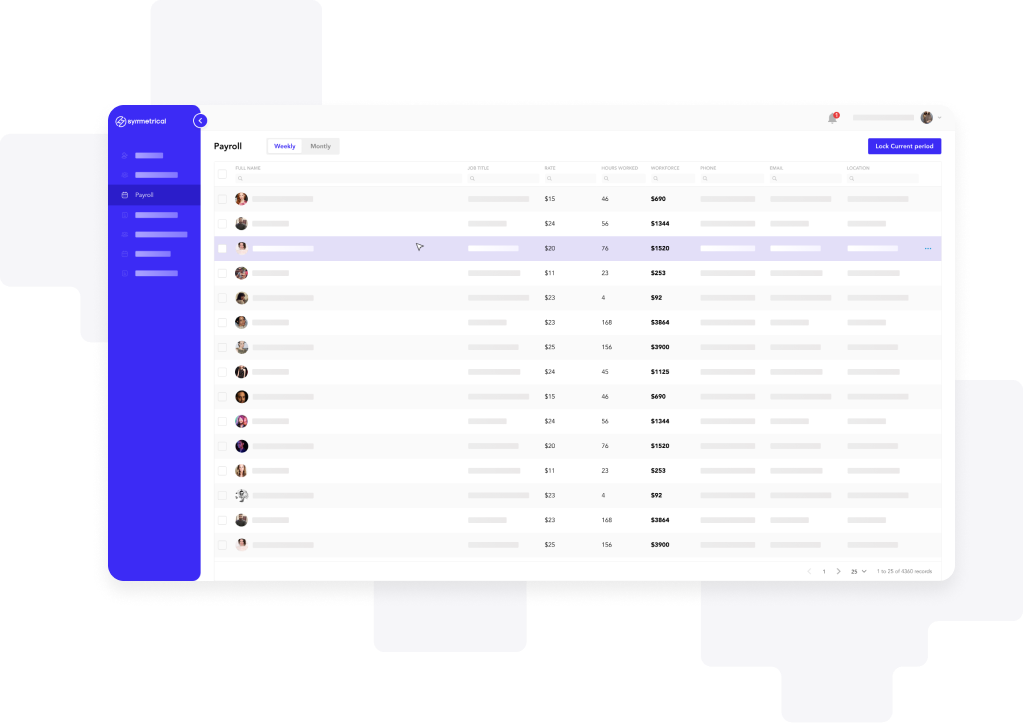Payroll provider Symmetrical.ai nabs $18.5M to streamline employee payouts
Symmetrical.ai, a payroll tech provider, today announced that it raised $18.5 million in financing led by Target Global with participation from Global Founders Capital, Finch Capital, Partech, Market One Capital, and Inovo. The proceeds will support Symmetrical’s expansion into new European markets and enterprise clients, CEO Piotr Smoleń told TechCrunch via email, as well as […]

Symmetrical.ai, a payroll tech provider, today announced that it raised $18.5 million in financing led by Target Global with participation from Global Founders Capital, Finch Capital, Partech, Market One Capital, and Inovo. The proceeds will support Symmetrical’s expansion into new European markets and enterprise clients, CEO Piotr Smoleń told TechCrunch via email, as well as the growth of the core 65-person team.
From a compliance perspective, it can be challenging for HR departments to pay people abroad — particularly if those employees have domestic residences. For example, U.S.-headquartered employers have to track the workdays of international workers on a state-by-state basis to stay in the good graces of the IRS. Because many payroll systems can’t record each employee’s “state of work” activity on a daily basis, HR teams have to enter the information manually to determine, for example, which states require the employee to withhold income taxes from their wages.
“Payroll is hyperlocal, forcing all international payroll software providers to spend money separately on local adjustments and support,” Smoleń told TechCrunch via email. “[We] founded Symmetrical in 2019 to bring the power of salary back to people by offering a salary-on-demand product.”
Smoleń launched Symmetrical — which has offices in Warsaw, London, and Barcelona — with Daniel Wartolowski and Maciej Noga in 2019. Smoleń previously cofounded Turbine Analytics, an investment information processing company based in Poland. Wartolowski was an analyst at EY, while Noga worked at HR and recruitment solutions firm Grupa Pracuj. The three say that they noticed the problem with payroll processes at their jobs, where they had to learn how payouts worked across many jurisdictions and software systems.
To address some of the problems plaguing payroll, Symmetrical offers tools designed to help employers access, analyze, and manage salary data. Using the API-based platform, managers can approve salaries for domestic and international employees as well as deductions and ad hoc payments, routing data into the relevant systems of record.
Symmetrical’s self-service dashboard allows HR teams to connect different payroll systems and customize how they appear. Algorithms optionally clean and normalize the payroll data while extracting information about hiring and pay policies.
“Our goal is to create a new, global technology architecture for the payroll industry, from scratch. An important part of [our] solution is data technologies that will improve data governance, overcome data silos, and deliver on the data-driven vision,” Smoleń added. “Our ultimate goal is to enable any company to hire and pay anyone in the world via just two API calls.”

Image Credits: Symmetry.ai
Asked how it handles customer data, Smoleń said that — in compliance with Europe’s General Data Protection Regulation — users are entitled to request that their data be deleted at any time. But by default, the company stores data such as transactions, contact details, employment data, and location data (to confirm an employee’s presence at work) for six years as per the privacy policy.
Symmetrical occupies a profitable segment of the broader HR software industry — an industry into which venture capitalists injected more than $12.3 billion last year, Pitchbook data shows. According to Allied Market Research, the market for managed payroll platforms will grow from $6.73 billion just seven years ago to $10.33 billion by 2023.
Driving the point home, a 2021 survey from Information Services Group found that 57% of organizations expect to be using a software-as-a-service or hybrid HR platform by 2023 — mainly to comply with payroll regulations.
Symmetrical has rivals in vendors including Payfit, SeamlessHR, Papaya Global, and Everee. But the company, which has a customer base of over 50 companies and annual recurring revenue eclipsing $1 million, sees legacy payroll providers such as ADP and Paychex and “traditional enterprise payroll software vendors” (e.g., SAP SuccessFactors) as its top competitors.
“We believe that ten years from now, ‘payroll software’ will be eliminated from the dictionaries and payroll will work invisibly as a part of broader platforms,” Smoleń said. “Symmetrical supports technical decision makers by releasing IT capacity engaged in developing payroll capabilities to focus on core technologies. In addition, Symmetrical [enables] IT departments to save costs, spent until now on … handling employees’ payroll-related issues. As a result, IT can focus on initiatives that drive the top line for the company. Our API allows instant access to up-to-date payroll and employee-related data, which is a major issue for larger organizations.”
When contacted for comment, Target Global partner Ben Kaminski told TechCrunch via email: “Over the past years, we have seen a number of changes affecting the employer-employee relationship — from gig workers becoming the dominant workforce across many sectors to, more recently, employees demanding to work remotely across the globe. The turmoil created by the introduction of new types of work contracts, push on companies to expand internationally, and changes in work regulation is forcing companies to rethink their payroll processes, traditionally outsourced to old-school companies with rigid processes and poor integrations with a growing ecosystem of HR tools. This is why we have invested in Symmetrical … it goes beyond the capabilities of expensive outsourcing and employer of record solutions, giving to fast-growing, international enterprises full control of their payroll processes.”







